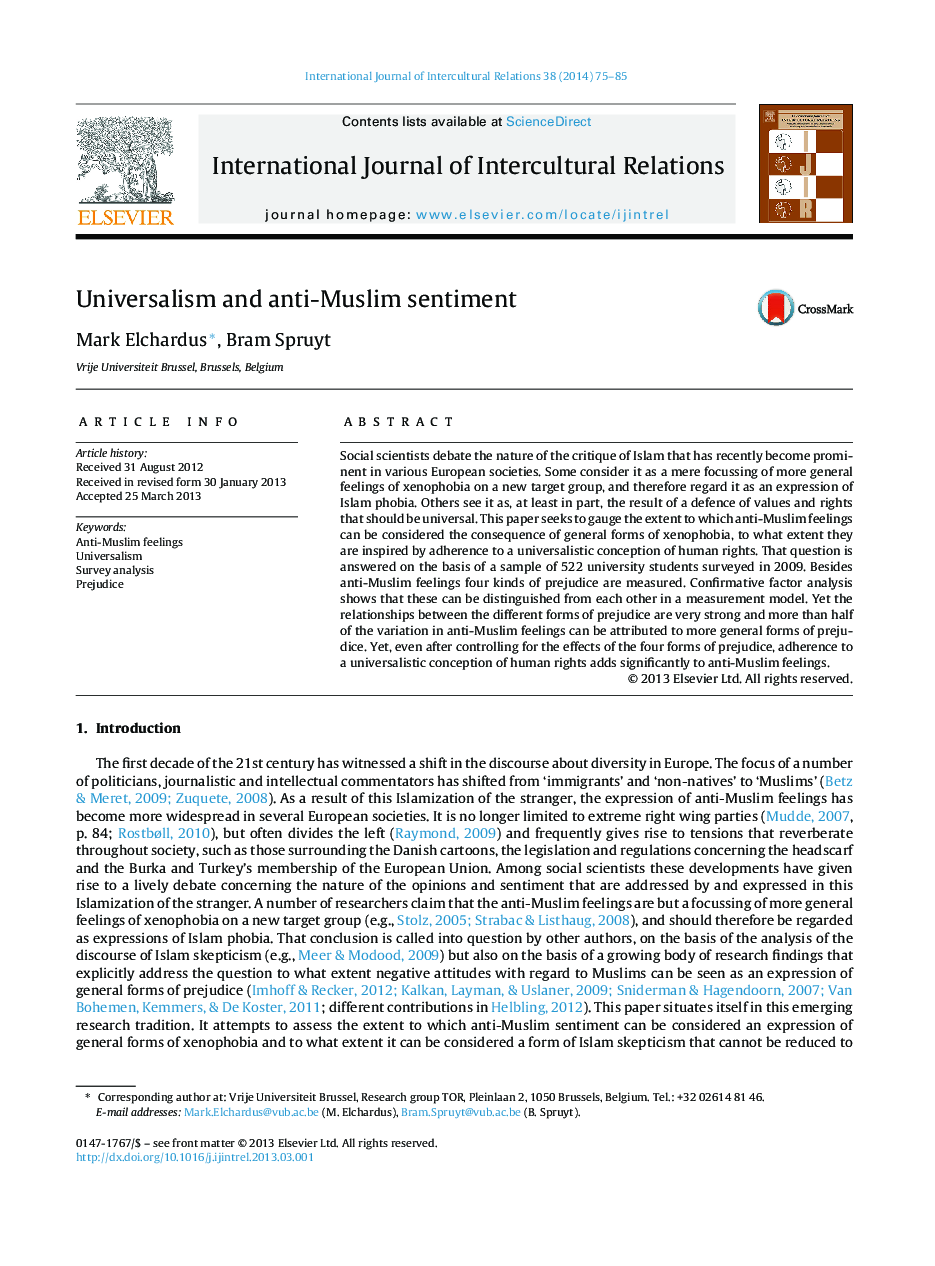| کد مقاله | کد نشریه | سال انتشار | مقاله انگلیسی | نسخه تمام متن |
|---|---|---|---|---|
| 947106 | 1475753 | 2014 | 11 صفحه PDF | دانلود رایگان |
• Anti-Muslim feelings can be distinguished empirically from more general forms of xenophobia and prejudice.
• Anti-Muslim feelings are strongly correlated with general forms of xenophobia and prejudice.
• Adherence to a universalistic conception of human rights adds significantly to anti-Muslim feelings.
Social scientists debate the nature of the critique of Islam that has recently become prominent in various European societies. Some consider it as a mere focussing of more general feelings of xenophobia on a new target group, and therefore regard it as an expression of Islam phobia. Others see it as, at least in part, the result of a defence of values and rights that should be universal. This paper seeks to gauge the extent to which anti-Muslim feelings can be considered the consequence of general forms of xenophobia, to what extent they are inspired by adherence to a universalistic conception of human rights. That question is answered on the basis of a sample of 522 university students surveyed in 2009. Besides anti-Muslim feelings four kinds of prejudice are measured. Confirmative factor analysis shows that these can be distinguished from each other in a measurement model. Yet the relationships between the different forms of prejudice are very strong and more than half of the variation in anti-Muslim feelings can be attributed to more general forms of prejudice. Yet, even after controlling for the effects of the four forms of prejudice, adherence to a universalistic conception of human rights adds significantly to anti-Muslim feelings.
Journal: International Journal of Intercultural Relations - Volume 38, January 2014, Pages 75–85
